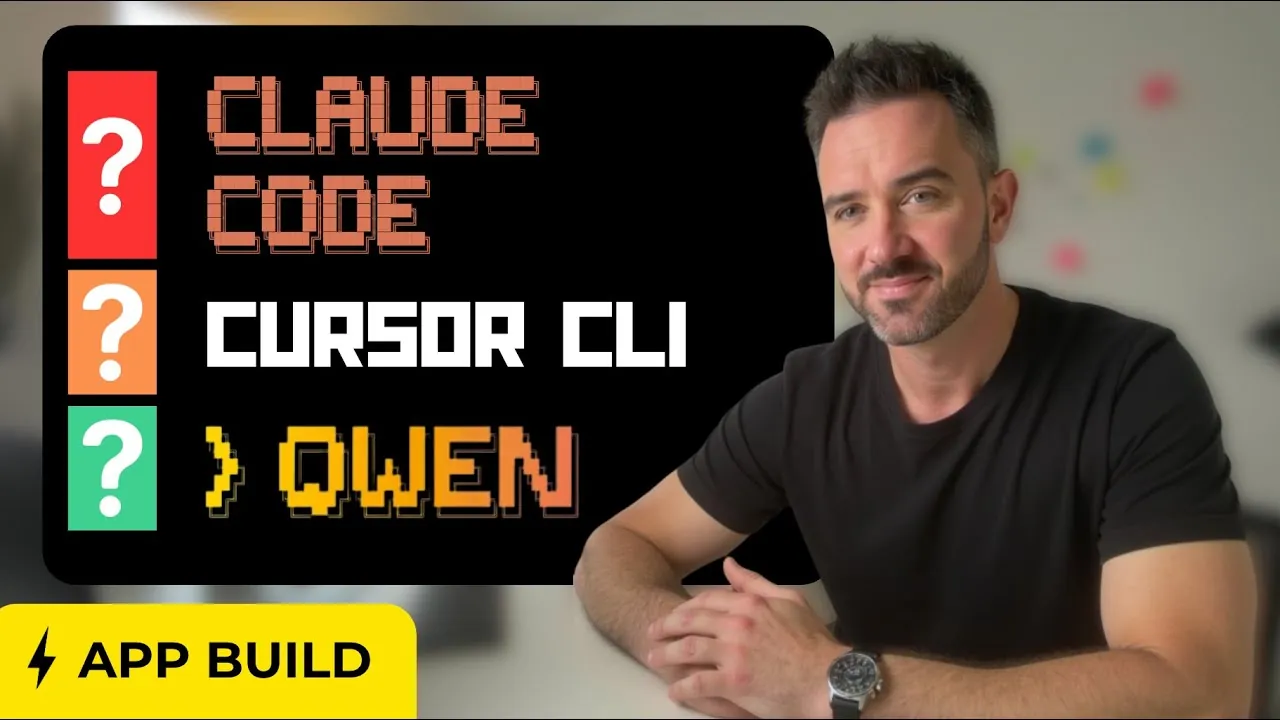
What if the future of app development hinged on the AI model you choose? With the rapid evolution of artificial intelligence, developers are faced with a critical question: which model delivers the best balance of speed, reliability, and cost-effectiveness? In the race to build smarter, faster applications, three contenders—ChatGPT-5, Claude, and Qwen—have emerged as frontrunners. Each features unique strengths, yet their differences could mean the success or failure of your next project. Imagine building a tool like “Newsletter Digest,” a web app designed to summarize newsletters, only to discover that your chosen AI model struggles to deliver functional results. The stakes are high, and understanding these models’ capabilities is no longer optional, it’s essential.
In this comparative overview, Rob Shocks explains how these AI models stack up in real-world scenarios, using the development of “Newsletter Digest” as a case study. You’ll uncover insights into their performance metrics, strengths, and limitations, as well as the hidden costs that could impact your budget. Whether you’re a developer seeking reliability, a strategist prioritizing creativity, or someone chasing speed, this breakdown will help you navigate the trade-offs. By the end, you might find yourself rethinking what matters most in an AI partner: precision, adaptability, or efficiency?
AI Model Comparison Summary
TL;DR Key Takeaways :
Claude (Opus 4.1 and Sonnet 4) emerged as the most reliable AI model for building the “Newsletter Digest” app, delivering a functional product with minimal errors but at a higher cost.
GPT-5 demonstrated strong versatility and strategic thinking but required more corrective prompts and troubleshooting, making it a viable but less efficient alternative to Claude.
Qwen Coder excelled in speed but struggled with reliability and completeness, making it less suitable for complex projects despite its affordability.
The development process used tools like Next.js, Tailwind CSS, Neon, Prisma, and Clerk, which streamlined app functionality, user authentication, and database management.
Cost analysis revealed Claude as the most expensive option, GPT-5 as a mid-range alternative, and Qwen as the most affordable but least reliable choice for app development.
Project Overview: Developing “Newsletter Digest”
“Newsletter Digest” is a web application that connects to Gmail, aggregates newsletters, and summarizes key stories for users. It also allows users to view individual newsletters in a streamlined interface. The app was developed using a modern tech stack to ensure scalability, responsiveness, and ease of use:
Next.js: A React-based framework for building a dynamic and efficient front end.
Tailwind CSS: A utility-first CSS framework that enabled clean, responsive design.
Neon: A Postgres database solution for managing user and application data.
Prisma: A database toolkit that simplified schema generation and management.
Clerk: A user authentication and management tool integrated with Stripe for seamless billing functionality.
The core functionality of summarizing newsletters relied on the capabilities of Claude, GPT-5, and Qwen Coder. These models were tested for their ability to deliver a functional app, their speed, usability, and cost-effectiveness.
Comparing the AI Models
Claude (Opus 4.1 and Sonnet 4)
Claude proved to be the most reliable and mature AI model for this project. It excelled in generating a fully functional app with minimal errors, particularly in tasks such as database schema generation and implementing app features. Its workflow required fewer corrective prompts, which significantly reduced development time. However, this high level of performance came at a premium, as Claude was the most expensive model in the comparison. For developers prioritizing reliability and efficiency, Claude offers a robust solution, albeit at a higher cost.
GPT-5
GPT-5 demonstrated strong strategic thinking and versatility but fell short in implementation compared to Claude. While it made reasonable progress in building the app, it required more corrective prompts and encountered occasional errors during the setup process. The Cursor CLI, used to interact with GPT-5, is still in beta, which introduced some glitches and limited functionality. Despite these challenges, GPT-5 showcased its ability to handle complex tasks with guidance, making it a viable option for developers who can invest additional time in troubleshooting and refinement.
Qwen Coder
Qwen Coder stood out for its speed, delivering rapid responses during the development process. However, it struggled to produce a complete and functional app. Its outputs were often incomplete, and it frequently stopped abruptly, requiring significant manual intervention to fill in the gaps. While its speed is promising, Qwen’s lack of reliability and functionality placed it behind both Claude and GPT-5 in this comparison. Developers seeking a balance between speed and reliability may find Qwen less suitable for complex projects.
ChatGPT-5 vs Claude vs Qwen
Stay informed about the latest in AI Models Comparison by exploring our other resources and articles.
Performance Metrics
The three AI models were evaluated based on their overall performance in building “Newsletter Digest.” The results revealed clear distinctions in their capabilities:
Claude: Delivered the most reliable and functional app with minimal errors and a smooth workflow.
GPT-5: Ranked second, offering decent progress but requiring more corrections and encountering occasional errors.
Qwen: Ranked third, excelling in speed but failing to deliver a complete and reliable app.
Claude’s ability to produce a polished and functional app with fewer iterations made it the top performer, while GPT-5’s versatility and Qwen’s speed highlighted their respective strengths and limitations.
Cost Analysis
Cost is a significant factor when selecting an AI model, particularly for projects with budget constraints. Here’s a breakdown of the pricing for each model:
Claude (Opus 4.1): $15 per million input tokens, $75 per million output tokens.
GPT-5: $0.125 per 1,000 input tokens, $0.10 per 1,000 output tokens.
Qwen: Pricing varies but is generally more affordable than Claude and GPT-5.
While Claude was the most expensive option, its superior performance justified the higher cost for this project. GPT-5 offered a more affordable alternative with slightly reduced effectiveness, while Qwen’s lower cost reflected its limited functionality and reliability.
Insights on Development Tools
The development process also highlighted the importance of the tools used alongside the AI models. These tools played a critical role in streamlining the workflow and making sure a smooth development experience:
Clerk: Simplified user authentication and integrated seamlessly with Stripe for billing, reducing the complexity of managing user accounts.
Cursor CLI: Provided access to multiple AI models but, as a beta tool, had limited features and occasional glitches that impacted usability.
Neon (Postgres DB): Worked effectively for database management, especially when paired with Prisma for schema generation and maintenance.
While most tools performed well, the beta status of Cursor CLI highlighted the need for further refinement to improve its reliability and feature set.
Looking Ahead: Future Considerations
As of August 2025, the AI landscape continues to evolve, with emerging models like Grok and Gemini showing potential to disrupt the market. Developers should remain vigilant for advancements in AI capabilities and pricing structures. For now, Claude remains the preferred choice for projects requiring maturity, reliability, and comprehensive functionality. GPT-5 offers a strong alternative for tasks that demand strategic thinking and creative input, while Qwen Coder’s speed may appeal to developers working on less complex applications. Continued refinement of tools like Cursor CLI and exploration of new technologies will further enhance the app development process, paving the way for more efficient and innovative solutions.
Media Credit: Rob Shocks
Filed Under: AI, Top News
Latest Geeky Gadgets Deals
Disclosure: Some of our articles include affiliate links. If you buy something through one of these links, Geeky Gadgets may earn an affiliate commission. Learn about our Disclosure Policy.

